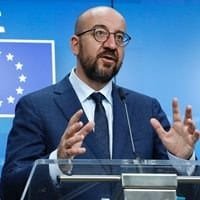(BRUSSELS) – With time running out for successful conclusion of an EU-UK trade deal and insufficient progress on key issues, EU leaders called on the UK at a summit Friday to make moves to make an agreement possible.
With the transition period due to end on 31 December, the leaders reaffirmed the EU’s determination to have as close as possible a partnership with the United Kingdom on the basis of the negotiating directives of 25 February 2020, while respecting previously agreed European Council guidelines, statements and declarations.
However, patience is running out, as apparently is trust in the UK’s good faith. The key sticking points to an agreement for the EU are the refusal of the UK to budge when it comes to maintenance of a level playing field, fisheries and governance.
For the EU, a level playing field is critical because it is the only way to ensure fair competition.
President of the Council Charles Michel explained: “For example, if the UK were to produce cars without respecting our EU standards, and with the support of massive subsidies, how could we be expected to grant them access to our markets with no tariffs and no quotas? That would be unfair and would risk hundreds of thousands of European jobs.”
M Michel added that the EU was 100 per cent united. And we fully trust and support our chief negotiator, Michel Barnier, to continue negotiations.”
EU leaders called on Member States on to step up their work on preparedness and readiness at all levels and for all outcomes, including that of no agreement. They also invited the Commission to give timely consideration to unilateral and time-limited contingency measures that are in the EU’s interest.
At the summit, the EU leaders also discussed the epidemiological situation, climate change and foreign affairs, in particular relations with Africa.
On the current epidemiological situation, EU leaders agreed to continue coordinating efforts on quarantine regulations, cross-border contact tracing, testing strategies, joint assessment of testing methods and temporary restriction on non-essential travel into the EU. They also discussed the next steps to ensure the development and distribution of COVID-19 vaccines.
On climate change, the leaders agreed that to meet the objective of a climate-neutral EU by 2050, in line with the objectives of the Paris Agreement, the EU needs to increase its ambition for the coming decade. They discussed the Commission’s communication on ‘Stepping up Europe’s 2030 climate ambition’, including the proposed emissions reduction target of at least 55% by 2030, and the actions required to achieve that ambition.


